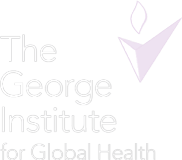Study Purpose/Description
Researchers at Concord Hospital are conducting a research study looking at low-dose colchicine (a commonly used and well tolerated gout medicine) to reduce platelet activation and inflammation in older people who do not have conditions/medications that affect blood clotting.
The aim of the study is to see whether colchicine reduces blood clotting and inflammation in older people compared to usual care. Colchicine affects important processes that cause heart attacks and strokes, including reducing inflammation and blood clotting. By utilising colchicine, we may stop or reduce clotting and inflammation in older people without increasing bleeding.
What’s involved?
Participants will be asked to complete the following activities over 4 weeks:
- Comply with the treatment that they are allocated to (usual care or colchicine).
- Attend 2 clinic visits and 1 phone call
- Have a blood test at each clinic visit
If you are suitable, you will be asked to:
- attend two clinic visits at Concord Hospital four weeks apart, with each clinic visit taking up to 1 hour;
- receive one 15 minute phone call one week into the study to check how you are tolerating the medication and if there are any side effects.
You will be allocated to one of the following groups, which will be:
- control;
- colchicine 0.5 mg daily for four weeks orally;
- colchicine 0.5 mg twice daily for four weeks (i.e., breakfast and dinner).
If you are allocated to the control group, you will simply continue taking your normal medicines. If you are allocated to the colchicine group, you will take the study medicine as well as all of your other regular medicines for four weeks, after which the medicine will be stopped.
Want to learn more?
- Email the researchers at sgnanenthiran@georgeinstitute.org.au
- Call the researchers on 02 97675000
Research Ethics Approval
HREC Committee Name: SLHD (Concord Hospital)
Approval Number: 2021/ETH11709



